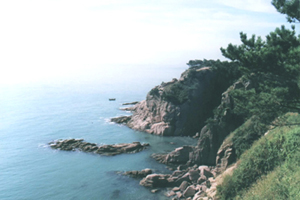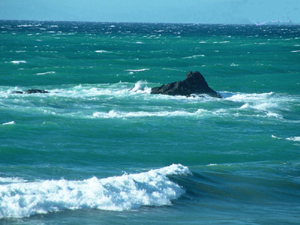| Home / English Column / Environment / Environment -- What's New | Tools: Save | Print | E-mail | Most Read |
| Advisors Call for Efforts to Save 'Dying' Sea |
| Adjust font size: |
Pollution is turning the Bohai Sea into a dead one, and China's political advisors are calling for governmental efforts to save it, which once boasted a "park of the ocean". Industrial bases and cities along the sea are dumping pollutants into Bohai, while they harvested "gold" thanks to rapid economic growth, said Liu Quanfang, a member of the National Committee of Chinese People's Political Consultative Conference ( CPPCC) at the ongoing session.
The sea, covering an area of 78,000 square kilometers, has 26 cities and about a hundred ports along its 3,784-kilometers coastal line. More than 40 rivers including the Yellow River, the second longest in China, flow into the Bohai Sea. However, "almost no river that flows into Bohai is clean" and it will become a dead sea in a matter of a dozen years if no effective measures are taken to curb the pollution, said the advisor from Northeast China's Liaoning Province. The rim of Bohai Sea, which covers Shandong, Hebei and Liaoning provinces, and port city Tianjin, is expected to see robust economic growth after the development of Tianjin's new coastal area was inked into the draft five-year plan of national economic and social development for the 2006-2010 period. Analysts believed that the new coastal area in Tianjin will serve as an engine for further development of the Bohai rim and even the country's northern region. From 1990 to 2004, 83 red tides were reported in the bay of Bohai Sea, and more than 80 percent of the pollutants in the sea came from the continent. About 2.8 billion tons of contaminated water is dumped into the Bohai Sea every year, Liu said. Once Bohai "dies", Liu warned, it cannot revive until after two centuries even if it does not take in a single drop of contaminated water from rivers and keeps exchanging water with other seas ceaselessly. According to the Ministry of Agriculture and the State Environmental Protection Administration, Bohai has become one of the worst polluted seawaters in China. The content of heavy metal detected in the mud of the sea bottom is 2,000 times that of the national standard.
"Pollution has caused extinctive damage to marine organisms in the sea. No large throng of any variety of fish, crab and testacean can be spotted in the sea now, and the whole of the spawning area in the sea was polluted," said the advisor. He added that some fish variety is losing its reproductive ability and extinction will be inevitable if pollution continues. China launched an anti-pollution campaign in 2002 to help the sea regain purity. However, the progress is slow and the challenge remains tough, Liu said. One third of the scheduled projects have not yet started and " many" other projects are left uncompleted as a result of unfulfilled investment commitment, Liu said. Liu complained responsibility is not clearly defined between different provinces, cities and governmental departments, which is also to be blamed for the inefficiency of the cleaning campaign. Xie Kechang, a member of the National Committee of the CPPCC and an academician of the Chinese Academy of Engineering, proposed to set up a unitive administration as a leading body to promote anti-pollution efforts for the sea. The unitive leading body should be composed of officials from related central governmental departments and the provinces and cities in the Boahi Sea rim, Xie said. The advisor from northern Shanxi Province said a unitive management may help avoid shirking responsibility and lead to more efficient work. Wu Xiaoqing, Vice-Minister of the State Environmental Protection Administration and also a CPPCC National Committee member, said it is a task of special importance to control water pollution in coastal areas for the making of a favorable ecological system in the sea. The advisors are in Beijing attending the annual full session of the top advisory body, which opened on March 3 and is scheduled to conclude on March 13. (Xinhua News Agency March 9, 2006)
|
| Tools: Save | Print | E-mail | Most Read |
 |
| Related Stories |
|

